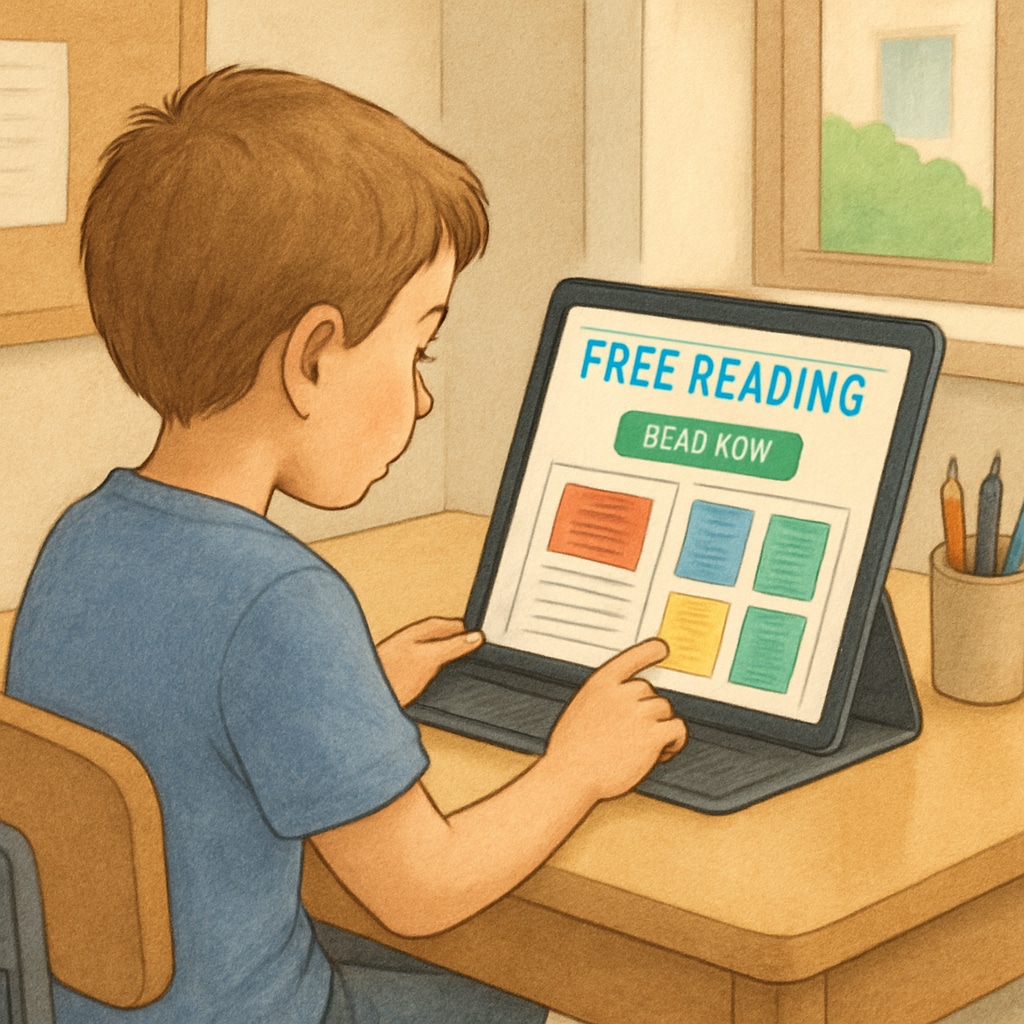For parents and educators, finding free reading comprehension tests to replace paid systems like A.R. points (Accelerated Reader) can be a challenge. However, fostering reading interest and comprehension skills doesn’t have to depend on costly platforms. By leveraging diverse strategies and free resources, families can create an engaging and effective reading environment at home. This article outlines practical methods for nurturing children’s reading abilities without spending a dime.
Engaging Reading Activities as Alternatives to Tests
Reading comprehension doesn’t need to rely solely on structured tests. Instead, engaging children in interactive activities can be just as effective for assessing their understanding and encouraging deeper connections with the material. Here are some ideas:
- Story Retelling: After reading a book or story, ask your child to retell it in their own words. This encourages critical thinking and ensures they’ve understood the main points.
- Creative Writing: Have your child write an alternative ending to a story or describe what might happen next. This activity builds imagination while checking comprehension.
- Discussion Questions: Use open-ended questions such as “Why do you think the character made that choice?” or “What would you have done in their place?”
These activities are not only free but also help students develop creativity, critical thinking, and communication skills—all of which are essential for reading comprehension.

Utilizing Free Digital Resources
Thanks to the internet, there’s no shortage of free tools and platforms to support reading comprehension. These resources provide access to a wide range of reading materials and interactive activities:
- Project Gutenberg: Offers thousands of free eBooks, including classics suitable for young readers.
- Storynory: Provides free audio stories for children, which can be paired with reading to enhance listening and comprehension skills.
- CommonLit: Features a library of free texts with accompanying comprehension questions, perfect for guided reading practice.
These platforms not only save costs but also allow students to explore a variety of genres, from fiction to informational texts, thereby broadening their literary horizons.

Family Involvement in Cultivating Reading Interest
Parents play a crucial role in developing a child’s love for reading. Creating a supportive reading environment at home can significantly enhance comprehension skills. Consider these strategies:
- Shared Reading Time: Set aside a daily or weekly time for family reading. Reading aloud together can improve fluency and comprehension.
- Book Selection: Allow children to choose their own books based on their interests. This autonomy fosters a sense of ownership and excitement about reading.
- Reading Challenges: Create fun, goal-oriented challenges, such as reading a certain number of books in a month, with small rewards for motivation.
By actively participating in a child’s reading journey, parents can make the process enjoyable and meaningful, turning reading into a cherished habit rather than a chore.
Measuring Progress Without Paid Systems
While paid systems like A.R. points are designed to track progress, there are simpler, free methods for evaluating a child’s reading development:
- Reading Journals: Encourage children to maintain a journal where they summarize what they’ve read, note new vocabulary, and jot down their thoughts.
- Informal Quizzes: Create short, fun quizzes based on the material they’ve read, focusing on key details and themes.
- Peer Sharing: Organize book clubs or reading groups where children share and discuss their favorite books with friends.
These alternatives provide valuable insights into a child’s progress while keeping the experience light and enjoyable.
In conclusion, replacing traditional reading comprehension tests with free alternatives not only saves money but also allows for a more personalized and engaging approach to learning. By incorporating interactive activities, digital resources, and family involvement, parents and educators can effectively cultivate children’s reading skills and interest. Remember, fostering a love for reading is the ultimate goal, and it’s entirely achievable without relying on expensive systems.


